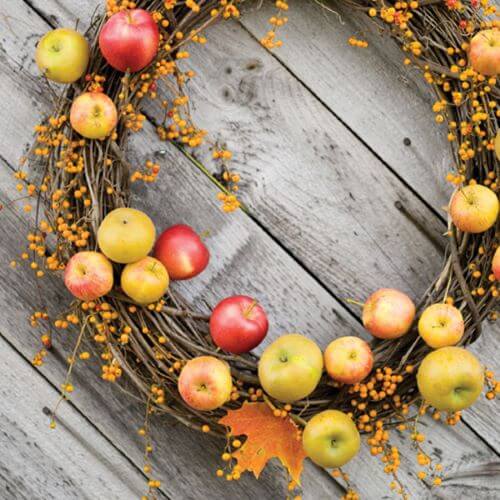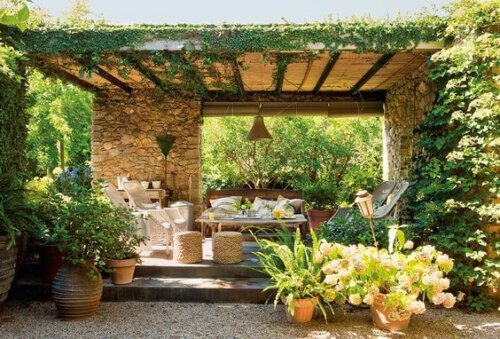All You Need to Know About Natural Fibers
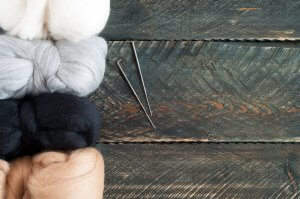
A few years ago, natural fibers started to become some of the favorite materials of the fashion world and of the interior design world.
Thanks to a rising demand for sustainable and environmentally friendly products, the use of natural fibers has made a comeback. Everyone wants to know what natural fibers are available, where they come from and what they can be used for.
Natural fibers can be of animal or vegetable origin. Although of course, if we’re talking about home decor, vegetable fibers are what’s rising in popularity. You can find them in decorative objects, furniture, rugs, etc. Below you’ll find a few of the most common natural fibers and their uses in home decor.
The vegetable world and natural fibers
Fibers of vegetable origin have their beginning in seeds (cotton), foliage (sisal), the stem (linen), or in the husk (coconut). The uses for each type of fiber depend on its special characteristics.
Cotton in decor
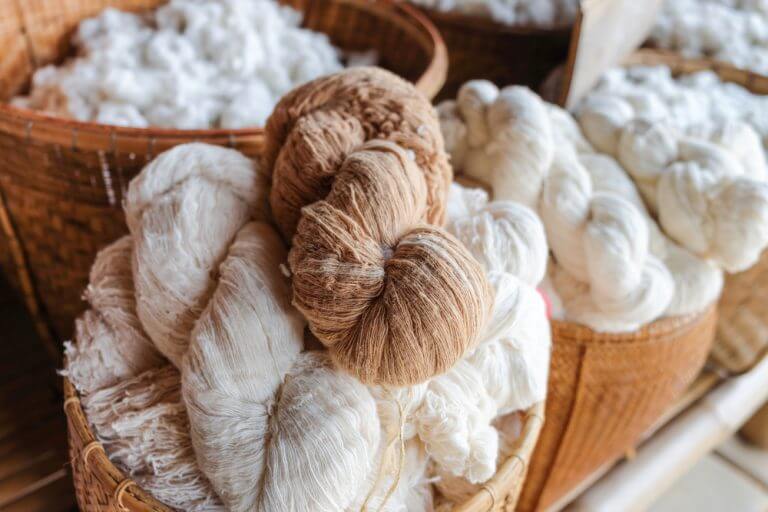
This is without a doubt the most common natural fiber in the textile industry. It grows in the shape of small pompoms around the cotton seeds. As you probably know, cotton has a very soft texture and is easy to work with. That’s one of the reasons why it’s so popular.
It also perfectly absorbs dyes, whether they’re vegetable or chemical dyes. That means that cotton fabric is perfect for bright colors. You’ll commonly find cotton mixed with other fibers, natural or synthetic, to give the fabric certain qualities. Cotton can be mixed with polyester, spandex or elastane, Lycra, rayon, etc.
It’s a natural fiber that goes perfectly in interior decor, whether in bedclothes, cushions, or table cloths. You can also find cotton in sofas, curtains and in any kind of upholstery.
Uses for hemp
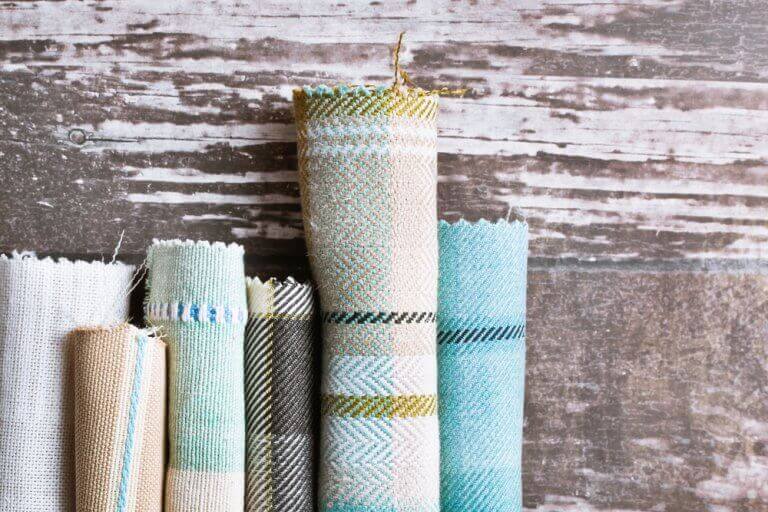
Hemp fiber can be obtained from the stalk of the hemp plant. One of its principal qualities is that it’s a great heat conductor. Therefore, hemp is perfect for keeping strong light at bay, such as in curtains. It even absorbs ultraviolet rays!
This makes hemp an ideal material for warmer climates, but that’s not all. It’s also mold resistant and helps to avoid the appearance of damp spots. So if you live in a coastal zone, this material would be perfect for your home.
The toughness of this natural fiber is so noteworthy that it is also used as a construction material to make boards, insulation, and even bricks. You have probably seen hemp used as twisted ropes for decorative items.
Linen: a precious resource in decor
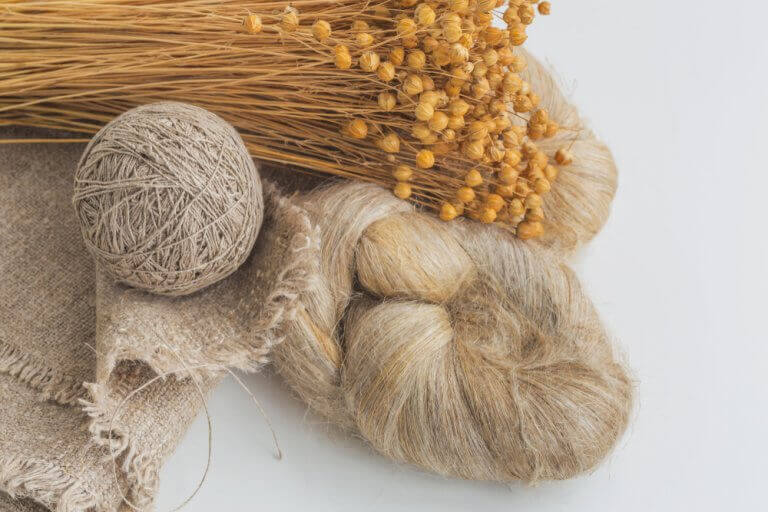
One of the most durable natural fibers of vegetable origin that exist is linen. Its toughness amazingly doesn’t conflict at all with its soft texture. It’s excellent as a thermal conductor, which means that it’s highly prized in warm climates.
Linen is one of the interior decorating world’s favorite materials thanks to its high quality, which makes it perfect for bed sheets, tablecloths or other textiles around the home.
Sisal fiber
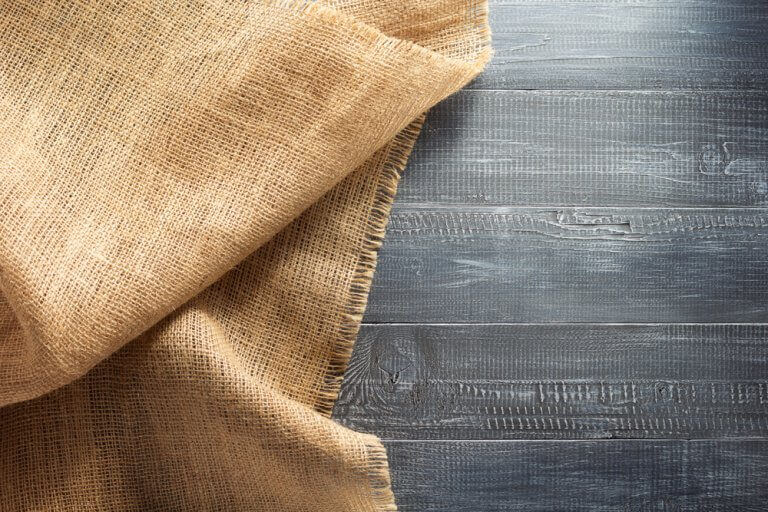
This fiber is very stiff and doesn’t stretch. Sisal is one of the fibers that’s captivated the attention of the decor industry over the last few years. You can find it in the shape of doormats, rugs, woven baskets for organizing household objects, chairs, outdoor furniture, etc.
Natural fibers: Ramie
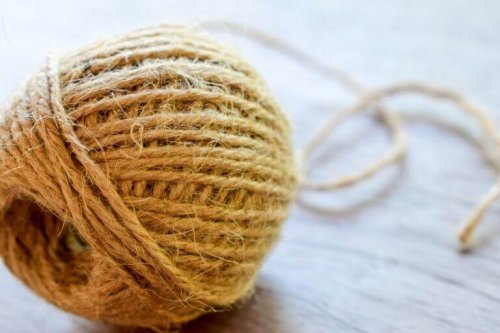
Have you heard of ramie? It’s a white fiber, that’s strong and shiny like silk. It’s not very flexible or elastic, but it does permit good airflow thanks to its open weave.
Fabrics made of ramie are very light and silky, but the lack of elasticity makes it a good choice to combine with other fibers, such as wool or cotton.
Go for Bohemian style natural fibers: Jute
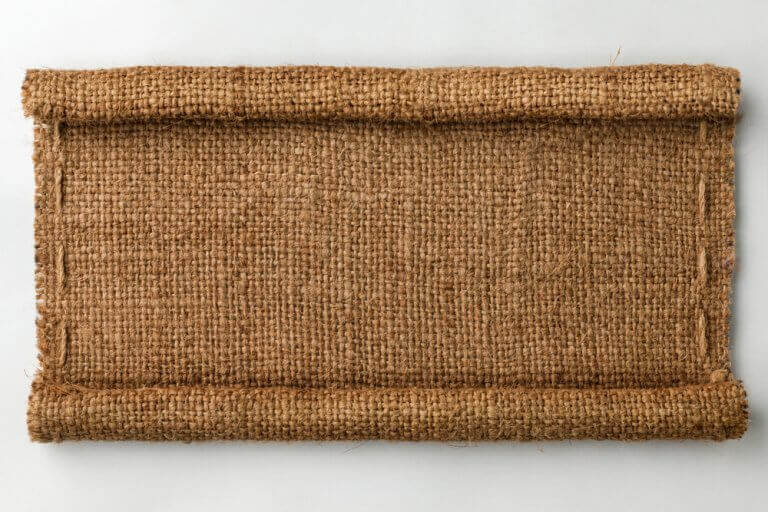
Jute is very easy to sow and cultivate, which makes it economical. The fiber is extracted from the plant’s long stem. It’s one of the strongest and most commercialized natural fibers, second only to cotton.
Jute has a low capacity of moisture absorption, which means it deteriorates quickly in high humidity. Of course, some of the uses for jute take advantage of its biodegradable nature, such as in containers for planting young trees, which can then be put directly into the ground without removing the jute sacking.
It’s one of the fibers that you can use to give life to decor objects for a Bohemian style, such as lamps, rugs, chairs and armchairs, etc.
Which will you choose?
These are just some of the most common natural fibers of vegetable origin that you can find, especially in decor.
Some of these fibers are soft and delicate, while others are thick and rough. However, all have become fast favorites when it comes to decorating homes and giving them a personalized touch.
A few years ago, natural fibers started to become some of the favorite materials of the fashion world and of the interior design world.
Thanks to a rising demand for sustainable and environmentally friendly products, the use of natural fibers has made a comeback. Everyone wants to know what natural fibers are available, where they come from and what they can be used for.
Natural fibers can be of animal or vegetable origin. Although of course, if we’re talking about home decor, vegetable fibers are what’s rising in popularity. You can find them in decorative objects, furniture, rugs, etc. Below you’ll find a few of the most common natural fibers and their uses in home decor.
The vegetable world and natural fibers
Fibers of vegetable origin have their beginning in seeds (cotton), foliage (sisal), the stem (linen), or in the husk (coconut). The uses for each type of fiber depend on its special characteristics.
Cotton in decor

This is without a doubt the most common natural fiber in the textile industry. It grows in the shape of small pompoms around the cotton seeds. As you probably know, cotton has a very soft texture and is easy to work with. That’s one of the reasons why it’s so popular.
It also perfectly absorbs dyes, whether they’re vegetable or chemical dyes. That means that cotton fabric is perfect for bright colors. You’ll commonly find cotton mixed with other fibers, natural or synthetic, to give the fabric certain qualities. Cotton can be mixed with polyester, spandex or elastane, Lycra, rayon, etc.
It’s a natural fiber that goes perfectly in interior decor, whether in bedclothes, cushions, or table cloths. You can also find cotton in sofas, curtains and in any kind of upholstery.
Uses for hemp

Hemp fiber can be obtained from the stalk of the hemp plant. One of its principal qualities is that it’s a great heat conductor. Therefore, hemp is perfect for keeping strong light at bay, such as in curtains. It even absorbs ultraviolet rays!
This makes hemp an ideal material for warmer climates, but that’s not all. It’s also mold resistant and helps to avoid the appearance of damp spots. So if you live in a coastal zone, this material would be perfect for your home.
The toughness of this natural fiber is so noteworthy that it is also used as a construction material to make boards, insulation, and even bricks. You have probably seen hemp used as twisted ropes for decorative items.
Linen: a precious resource in decor

One of the most durable natural fibers of vegetable origin that exist is linen. Its toughness amazingly doesn’t conflict at all with its soft texture. It’s excellent as a thermal conductor, which means that it’s highly prized in warm climates.
Linen is one of the interior decorating world’s favorite materials thanks to its high quality, which makes it perfect for bed sheets, tablecloths or other textiles around the home.
Sisal fiber

This fiber is very stiff and doesn’t stretch. Sisal is one of the fibers that’s captivated the attention of the decor industry over the last few years. You can find it in the shape of doormats, rugs, woven baskets for organizing household objects, chairs, outdoor furniture, etc.
Natural fibers: Ramie

Have you heard of ramie? It’s a white fiber, that’s strong and shiny like silk. It’s not very flexible or elastic, but it does permit good airflow thanks to its open weave.
Fabrics made of ramie are very light and silky, but the lack of elasticity makes it a good choice to combine with other fibers, such as wool or cotton.
Go for Bohemian style natural fibers: Jute

Jute is very easy to sow and cultivate, which makes it economical. The fiber is extracted from the plant’s long stem. It’s one of the strongest and most commercialized natural fibers, second only to cotton.
Jute has a low capacity of moisture absorption, which means it deteriorates quickly in high humidity. Of course, some of the uses for jute take advantage of its biodegradable nature, such as in containers for planting young trees, which can then be put directly into the ground without removing the jute sacking.
It’s one of the fibers that you can use to give life to decor objects for a Bohemian style, such as lamps, rugs, chairs and armchairs, etc.
Which will you choose?
These are just some of the most common natural fibers of vegetable origin that you can find, especially in decor.
Some of these fibers are soft and delicate, while others are thick and rough. However, all have become fast favorites when it comes to decorating homes and giving them a personalized touch.



